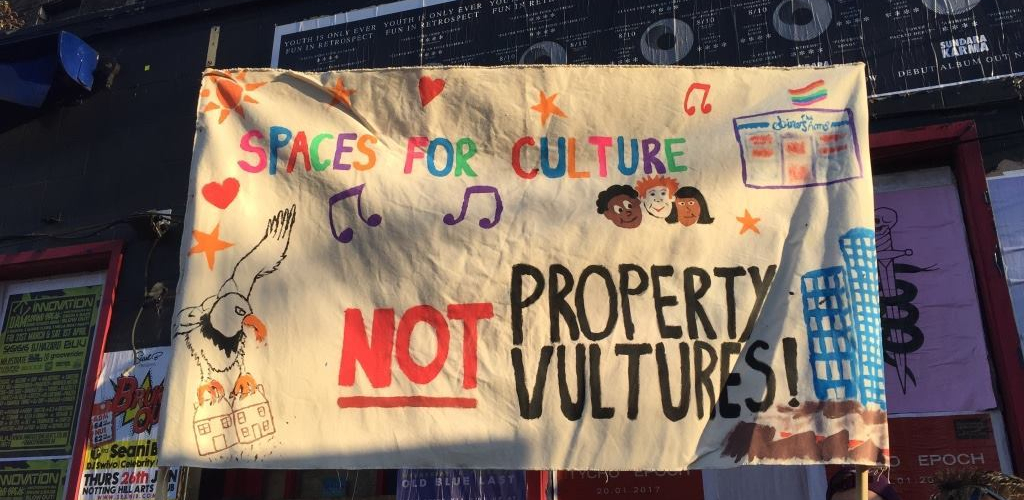
From Victoria Centre flats – also known as Fairy Towers or Vaseline Villas by queer residents – The New Foresters, Nottingham’s only LGBTQI+ space, sits east. A city of three hundred thousand from where I write this text.
My hometown of Birmingham’s Gay Village lies fifty-something miles southwest, in a flux of closure since the 1970s. Four out of sixteen spaces have closed since 2019, with more expected due to residential developments responding to HS2, a new high-speed railway that will reduce journey times to the capital by a whopping 32-minutes. A further hundred-or-so miles southeast – transiting the line that will make Birmingham a commuter city – nearly sixty per cent of London’s queer venues have closed since 2011. Casualties of redevelopment, accelerated by the coronavirus pandemic.
This banner was held by demonstrators outside The Joiners Arms, a queer pub in East London that was purchased and closed by property developers in 2015. Emblematic of the realities facing many community spaces, the Friends of the Joiners Arms formed to combat closure and successfully campaigned for the venue to be recognised as an Asset of Community Value. This recognition led Tower Hamlets Council to grant permission for the site to be developed, under the condition that a queer pub was included with a lease of 25-years and late-night licensing hours mirroring the original venue.
Tracing queer geographies reveals communities that are threatened but resilient – set in motion to occupy and rebuild meaningful space.
January 2022




